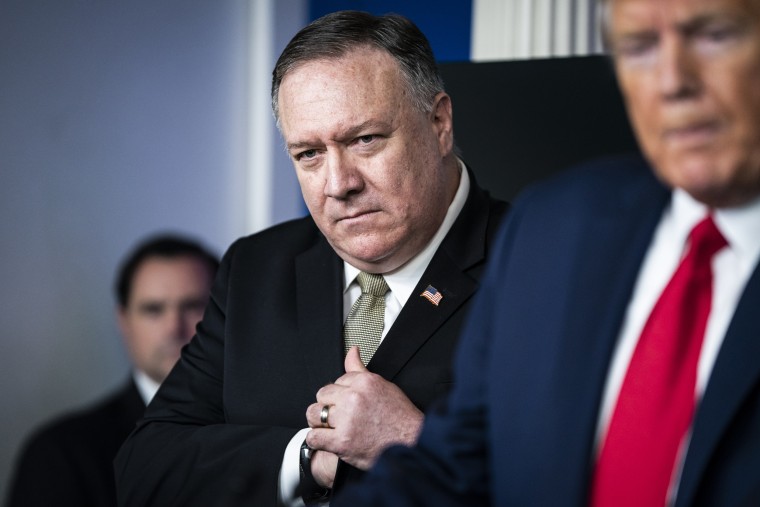Over the last couple of weeks, Secretary of State Mike Pompeo has faced a harsh spotlight and confronted allegations of serious abuses, including a controversy in which the Kansas Republican fired an independent watchdog that was investigating him. Yesterday, however, we were reminded that the cabinet secretary is burdened by policy failures, too.
Two years ago, Donald Trump, for reasons the American president struggled to explain, withdrew from the international nuclear agreement with Iran, but the White House left one element of the policy in place. Under Trump's approach, international workers could still go to Iran to help convert nuclear reactors to peaceful uses, while simultaneously keeping an eye on Iran's nuclear program.
Yesterday, as the New York Times reported, Pompeo announced that the Trump administration is reversing course on this element of the agreement, too.
The State Department announced on Wednesday that it would begin imposing economic penalties on foreign businesses working at Iranian nuclear facilities, the latest effort by the Trump administration to dismantle an Obama-era accord with Tehran. Companies from Russia, China and Europe will have 60 days to wind down their operations converting nuclear plants for peaceful purposes, as allowed under the 2015 deal between Iran and world powers.
This is not what our allies wanted to see. The White House evidently doesn't care.
On Twitter, Pompeo defended the move, saying it's needed to counteract "Iran's continued nuclear escalation."
But assessments like these necessarily raise an awkward question: why is it, exactly, that we're seeing nuclear escalation in Iran?
In November 2018, for example, the secretary of State sat down with CBS News' John Dickerson who asked about the prospects of Iran restarting its nuclear program in response to the Trump administration's policy. "We're confident that the Iranians will not make that decision," Pompeo replied.
Pompeo was, of course, wrong. As regular readers know, before the Republican administration abandoned the Joint Comprehensive Plan of Action (JCPOA) -- the formal name for the Iran nuclear deal -- Iran's nuclear weapons program was on indefinite hold. In the months that followed Team Trump's decision, officials in Tehran took incremental steps in a dangerous direction, starting up advanced centrifuges, for example, increasing the speed with which Iran can produce enriched uranium.
After Trump ordered an airstrike that killed Gen. Qassem Soleimani -- again, for reasons the White House struggled to explain -- Iran went further, announcing that it was also ending its commitment to limit enrichment of uranium.
Geopolitical debates over nuclear policy can be complex, but the dynamic in this instance is surprisingly straightforward: Trump and Pompeo took unnecessary steps that ended up accelerating the Iranian nuclear program that was in check. The Trump administration is now scrambling to deal with Iran's "nuclear escalation," which was made possible by the Trump administration.
Earlier this month, Pompeo published a tweet insisting that "Americans are safer" as a result of the president abandoning the Iran deal. Four days later, a senior State Department official conceded that the Iranian threat has actually gotten worse, not better.
It's among the worst and most serious of the Trump White House's self-inflicted wounds.
